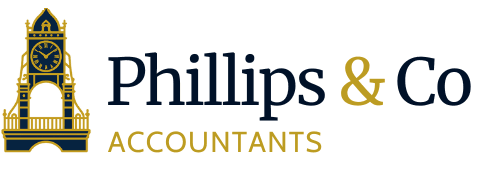Author: Phillips & Co Accountants, Chester
Date: 29 October, 2025
Westminster is alive with whispers of a new tax that could fundamentally change the landscape for professional partnerships. If you are a partner in an LLP or general partnership, you need to pay immediate attention.
There are serious proposals for a new “Partnership National Insurance Contribution” (PNIC) charge, potentially set at 15% of profits.
This isn’t a “maybe” for the distant future. This new tax is being actively considered for the Autumn Budget. For many, this has the worrying feel of another IR35-style headache—a complex, costly, and disruptive charge that could catch thousands of businesses off guard.
As accountants in Chester, we serve many of the region’s most successful partnerships. We are already proactively modelling the impact for our clients, and the potential fallout is serious.
What is This ‘Partnership NIC’ (PNIC)?
In simple terms, the proposal is to “level the playing field” between companies and partnerships.
Companies pay Employer’s NIC on their staff’s salaries. Partnerships, however, do not pay this on profits distributed to partners. The CenTax report, which originated this idea, argues this is an unfair advantage.
The proposed solution? A new 15% PNIC charge, which the partnership itself would have to pay on its profits before any net amount is paid out to you, the individual partner. This is a fundamental, seismic shift. The responsibility for this tax would move from the individual to the partnership itself, creating a new, complex collection mechanism and a heavy administrative burden.
The Impact on Chester: This Isn’t Just a ‘Big City’ Problem
It is dangerously easy to dismiss this as a tax on “Big Law” and “Big Four” accountancy firms in London. This is a mistake.
The proposals are unclear whether this new charge will be restricted to Limited Liability Partnerships (LLPs) or applied to all partnerships. Either way, businesses right here in Chester and Cheshire will be in the firing line.
This includes:
High-street legal firms
Architectural and design practices
Vets
GP surgeries and dental practices
Family-run farms
Consultants, surveyors, and other professional services
If the tax is restricted to LLPs, many will be tempted to convert to a general partnership. If it applies to all, it’s a direct 15% hit on profits. Neither scenario is simple, and both require expert guidance.
“Should We Change Structure?” – A Word of Caution
The most common question we’re hearing is, “Should we disincorporate or change our structure to avoid this?”
Our advice is clear: Act in haste, repent at leisure.
A knee-jerk reaction to change your business structure is fraught with danger. Moving from an LLP to a general partnership, for example, could solve one tax problem but immediately expose you to unlimited personal liability.
Your partnership structure is the foundation of your business. It dictates your legal standing, your personal risk exposure, and your entire tax profile. It should never be changed in a panic.
Your Next Step: A Proactive Structural Review
This is not a “wait and see” moment. Waiting for the Chancellor’s Budget speech is the riskiest move of all.
As proactive accountants for Chester’s professional partnerships, we believe in planning, not reacting. We are already running impact assessments for our clients to model what a 15% or even a 10% PNIC would do to their net-of-tax drawings.
This is the only way to make a rational, informed decision.
Are you a partner in an LLP or general partnership? Don’t wait to find out what this means for your income.
Call/WhatsApp today on: 01244 220 0620 to schedule a confidential, proactive structural review. Let’s build your defence before the charge becomes a reality
If you’d like expert guidance, contact Phillips & Co Accountants Chester today.
Keep More, Stress Less
Disclaimer
The information contained in this blog is for general guidance only. It does not constitute professional advice and should not be relied upon as such. Always seek tailored advice from a qualified accountant regarding your specific circumstances.
